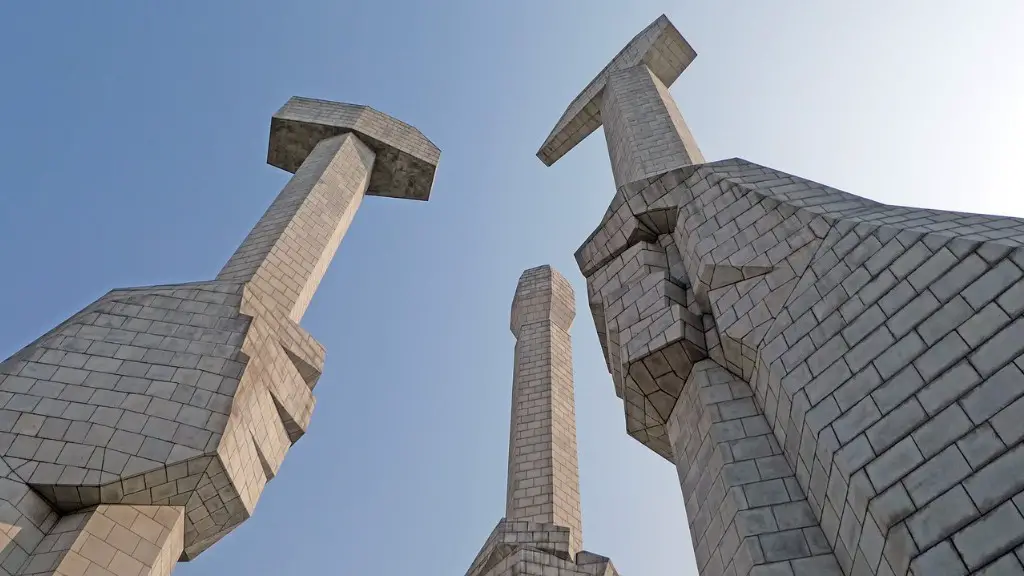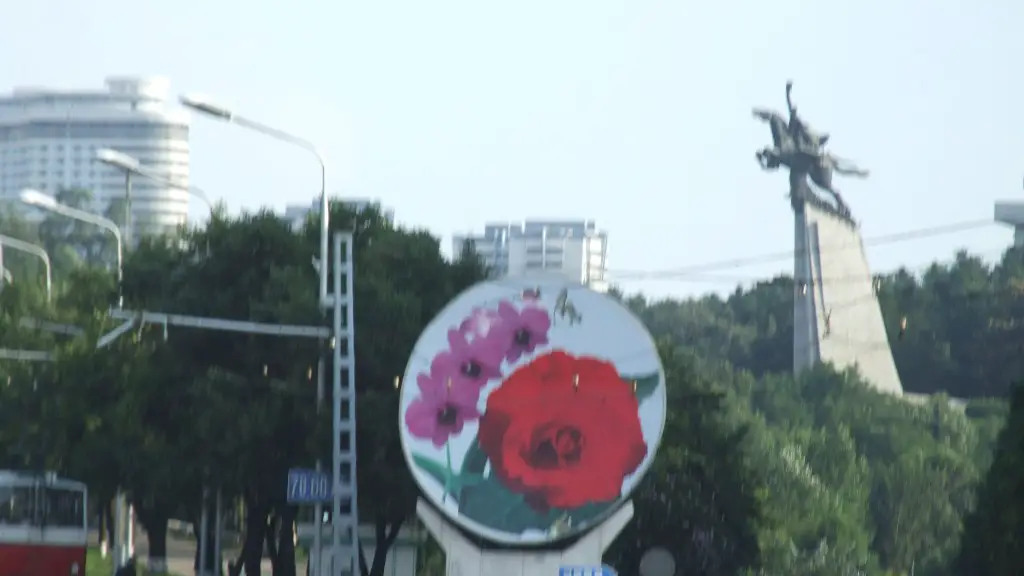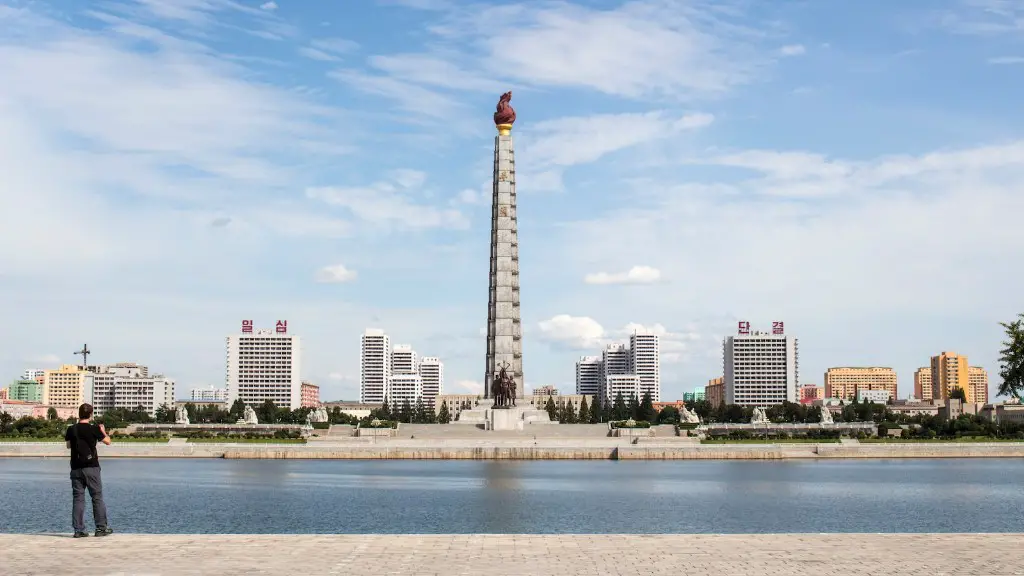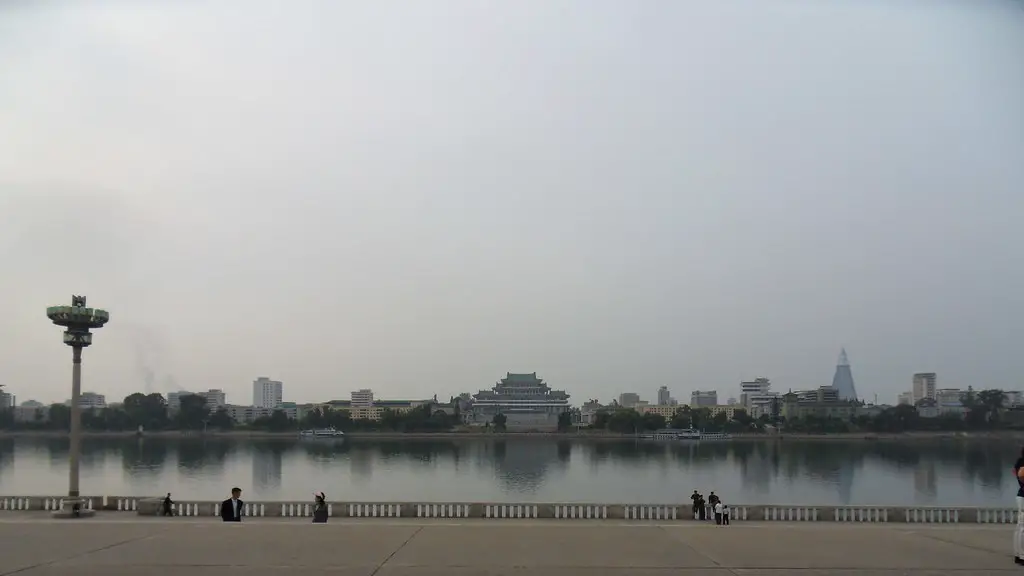Who Is Ruling North Korea Now
North Korea is a mysterious country shrouded in secrecy and isolation. Its current leader is one of the world’s most famous people, in spite of the fact that very few people have any real understanding of him or his leadership style. But who is the man currently in charge of the world’s only dynastic dictatorship?
The ruler of North Korea is Kim Jong-un, the youngest son of Kim Jong-il, the country’s former leader. Kim Jong-un was born on 8 January 1983 and after his father passed away in 2011, Jong-un was quickly put into power. After becoming the new leader of North Korea, Jong-un brought in a variety of new changes which included economic reforms, the opening of relations with South Korea and the improvement of living conditions for the citizens.
Though he has made some positive changes, Jong-un remains an incredibly controversial figure on the international stage. Throughout his reign, Jong-un has proven to be incredibly unpredictable, enacting sudden and oftentimes drastic policy changes without warning. Experts are constantly trying to predict his next move, but his unpredictable nature makes it nearly impossible to do so.
Jong-un’s style of leadership has also been criticized for its brutality. He has been accused of human rights violations, including mass executions and torture, and of gearing North Korea’s resources towards its nuclear weapons program, making the country a pariah in the international community.
In spite of this, Jong-un has managed to continue ruling the country. He relies heavily on nationalist propaganda, showing no tolerance for any form of dissent or criticism, and uses his rugged good looks, military uniform and political savvy to cultivate a cult-like following amongst the people of North Korea.
Kim Dynasty’s Control
Kim Il-sung, Kim Jong-un’s grandfather, was the first leader of North Korea, coming to power in 1948. The country experienced enormous economic growth during his years of rule, based mainly on the production and export of armaments. Kim Il-sung’s son, Kim Jong-il, took over power in 1994 after his father fell ill. Under his rule, the country’s economy stabilized, although the population continued to suffer from extreme poverty.
It is believed that Kim Il-sung had groomed his son from an early age to succeed him, and that job was eventually passed on to his grandson, Kim Jong-un. Kim Jong-un has been in power since his father passed away in 2011, and the Kim dynasty’s control over North Korea has remained unbroken.
Over the years, the Kims have become masters of propaganda and have successfully cultivated a personality cult around themselves and the country. They have managed to keep the citizens blind to the realities of the outside world, while convincing them that they are living in the world’s most powerful nation.
Though living in North Korea is far from ideal, with one of the lowest standards of living in the world, the Kims have managed to remain in power. This is largely due to the sheer amount of propaganda they have used over the years and their refusal to admit any wrongdoing.
The Military’s Role
Although North Korea is technically a dictatorship, the country’s military plays a huge role in maintaining the regime. North Korea has the fourth largest military in the world, and its pocketbook is fueled largely by arms sales. The military has been instrumental in keeping the Kims in power by silencing any form of dissidence or criticism.
The military’s influence has also been felt in the country’s economy. According to reports, the North Korean government has put more resources into its military programs than it has into economic development, resulting in extreme poverty and economic stagnation.
Though the military certainly plays a role in keeping the Kims in power, the citizens of North Korea also bear a certain amount of responsibility. Oftentimes, people will follow leaders out of fear, and this is certainly the case in North Korea. Though citizens are kept in line by an oppressive regime, they have also been kept docile by years of brainwashing and propaganda.
The Media’s Role in North Korea
The media has been a major player in the Kim Dynasty’s success over the years. The media is highly controlled, with most news presented to the public in a positive light and any bad news being quickly silenced. People in North Korea are not allowed access to the Internet and foreign media is highly censored.
Without access to the outside world, the citizens of North Korea are left in the dark about what is going on outside their country, creating an environment of fear and mistrust. The media’s portrayal of the Kims helps to strengthen their cult-like status among the population, and make it difficult for anyone to challenge their rule.
In addition to controlling the news, the regime also carefully controls the entertainment and culture of the country, with movies and books that celebrate the Kim dynasty. This helps to ensure that any dissidence is quickly silenced and creates an environment in which the Kims are able to retain their power.
The Horrors of North Korea
The Kim family has been ruling North Korea for over 70 years and have managed to cement their power by utilizing a variety of oppressive tactics, including censorship, widespread surveillance, propaganda, and a heavy-handed military. The people of North Korea live in constant fear of the regime and its punishments, and their quality of life is far worse than many other countries.
The regime also engages in a variety of human rights abuses, including torture, forced labor, and oppressive prison camps. Dissidents are routinely arrested and disappear, while many refugees are sent back to North Korea where they face imprisonment, torture, and even death. The Kim dynasty has also been accused of using its nuclear weapons program as a means of keeping the population in line.
The Kims have held onto their power for decades, largely due to their ability to stay one step ahead of their opponents and the fear they inspire in their population. In spite of their brutal and oppressive tactics, the Kims have been successful in keeping their grip on power — at least for now.
Sanctions Against North Korea
In response to North Korea’s nuclear weapons program and its human rights abuses, the international community has imposed a number of sanctions against the country. The United States, the European Union and the United Nations have all imposed economic sanctions against North Korea, restricting its trade with the outside world and prohibiting foreign investments.
These sanctions have had a significant impact on the country’s economy, making it even more difficult for the citizens of North Korea to make a living and undercutting the Kims’ ability to finance their weapons programs. The sanctions have also been beneficial in that they have drawn attention to the dire situation in North Korea and have made it difficult for businesses to work with the country.
Though the sanctions have presented a challenge to the North Korean regime, they have done little to stop the Kims from ruling. In spite of their attempts, the regime has found ways to evade the sanctions and to keep their grip on power.
North Korean’s Impact on International Relations
North Korea’s nuclear weapons program has had a major impact on international relations, with the country’s aggressive stance towards the United States and its allies raising fears of a potential nuclear war. The Kims have refused to give up their weapons program, and have gone to great lengths to defy the international community.
North Korea has continued to test missiles, leading the United States and other countries to increase their military presence in the region and to issue a number of joint statements condemning the country’s actions. The international community has put pressure on the Kims to stop their weapons program and to start engaging in more productive and peaceful relations with other countries.
Though the Kims have refused to comply with the demands of the international community, there have been some small signs of progress, with the two countries agreeing to talks and taking small steps towards improving relations. Though progress is slow, the international community is hopeful that North Korea can eventually become a responsible member of the global community.
United Nations and North Korea
The United Nations has long been critical of the North Korean regime and its violations of human rights. The UN has made a number of attempts to pressure the Kims into changing their policies, including the imposition of sanctions, the deployment of UN experts, and the formation of the United Nations Commission of Inquiry.
Though these measures have not been enough to make real changes, the attention of the international community has helped to draw attention to the dire situation in North Korea. It has also put pressure on the Kims to change their policies and to take steps towards improving relations with the outside world.
The UN is also working to educate the citizens of North Korea and to help them understand their human rights. In particular, the UN has helped to set up educational programs and radio broadcasts in North Korea in an effort to help spread the word about democracy and human rights.
Though the UN has faced opposition from the North Korean regime, it is hopeful that its efforts will yield positive results in the future. Though progress has been slow, the UN is confident that its actions will eventually lead to real and lasting change in North Korea.





